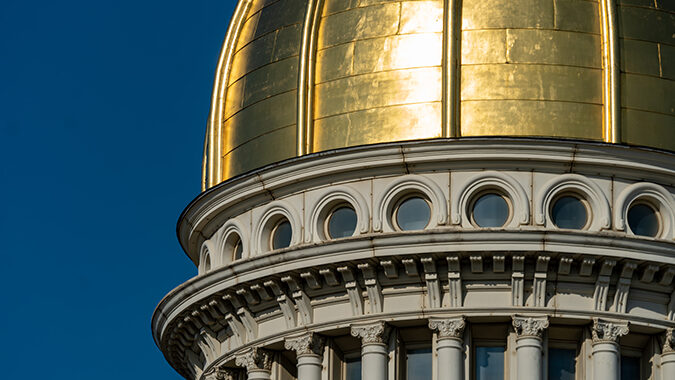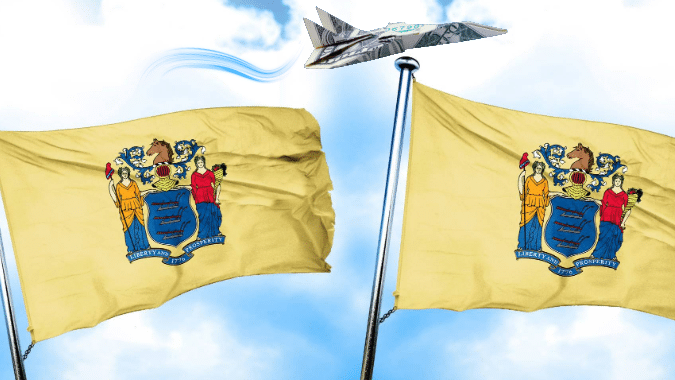NJBIA President & CEO Michele Siekerka said Thursday the governor’s proposed $53.1 billion budget for FY24 follows through on promised tax relief for corporations, but businesses were left out of property tax relief, and are still facing steep unemployment insurance tax hikes.
In a wide-ranging interview on Philadelphia’s WPHT Talk Radio with Dawn Stensland, Siekerka noted property taxes collected by local governments in New Jersey are among the highest in the nation, but businesses are excluded from the state ANCHOR property tax rebate program that will be funded for the second year in a row in the next state budget that begins July 1.
“New Jersey businesses pay nearly 50% of the property taxes here in the state of New Jersey and yet they are ineligible to receive a rebate,” Siekerka said. “They weren’t last year and they’re not this year. Stop and think about that. No property tax relief for businesses.”
Siekerka also pointed out that ANCHOR rebates are not property tax reform and high property taxes make New Jersey less competitive for businesses looking to locate or expand here.
“Here’s what’s also wrong with ANCHOR: Relief is not reform,” Siekerka said. “Relief is a rebate check that is subject to discretion of where we are (budgetarily) at a point in time. And it is not necessarily sustainable – it’s one of the first things to go when we come up short.”
The business community is also disappointed that the proposed budget, which contains a $10 billion surplus, does not use its federal COVID-19 pandemic aid to address steep payroll tax increases businesses face to replenish the Unemployment Insurance Trust Fund.
Instead, for the third year in a row, New Jersey businesses will see a significant increase in their unemployment taxes, which penalizes them for the prolonged state-ordered business shutdown during COVID-19 that caused jobless claims to soar. These payroll tax increases are particularly difficult for small businesses to absorb and are a disincentive for hiring.
“Every dollar matters to a small and mid-size business in the state of New Jersey,” Siekerka said. “And every dollar that we spend to replenish the unemployment insurance trust fund is a dollar that we’re not putting back into our workforce, into improved technology or into our community as business owners.”
The budget does have some good news, however, for the business community. The governor commits to reducing the top 11.5% corporate business tax – the nation’s highest – by removing the temporary 2.5% surcharge as scheduled on Dec. 31, 2023. NJBIA will advocate for this to be “step 1” of a longer-term plan, because a 9% tax on corporate income is still too high and will leave New Jersey with the fourth-highest tax in the nation and highest in the region, she said.
NJBIA will be examining the proposed state $53.1 budget line by line, as will the Legislature, Siekerka said. The fact that the plan makes responsible pro-business investments in pensions, education and other areas, and keeps the promise to sunset the corporate business surcharge are all positives, she said.
However, the budget review process should carefully examine overall spending levels, which are $2.5 billion, or 5% higher, than the current budget and may not be sustainable in the longer term, Siekerka said. NJBIA will be looking at where some of the budget spending could be redirected to provide unemployment tax relief and property tax relief for businesses, she said.
To hear the full audio of the interview, click here.

